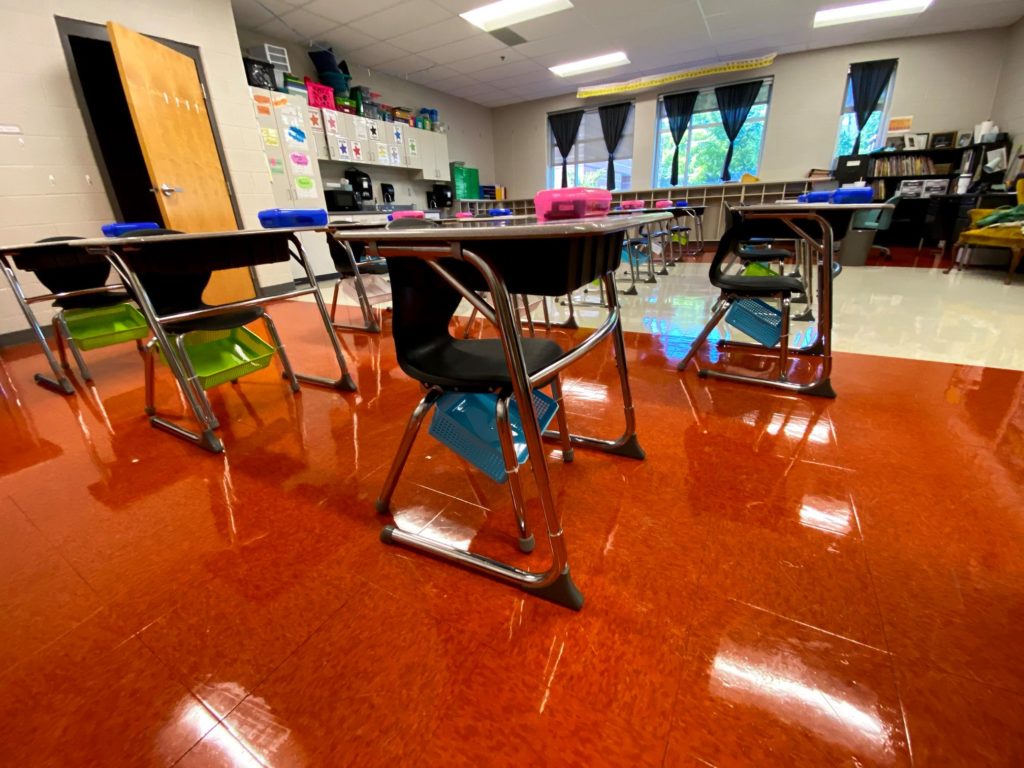
The recent Immigration and Customs Enforcement raids in Nashville have left many families afraid to leave the house for even basic necessities, like getting groceries or taking their kids to school. Teachers and advocates are warning that this could spark mental health issues for some students, especially in the face of family separation.
Laura Verner, a teacher at an elementary school in Antioch with a large immigrant population, has seen the fallout from parents ripped from their children in the last few weeks.
“I had a student whose mother was deported last weekend. They spent days not knowing where she was,” she told WPLN News. “I had this little girl sitting in my classroom right outside my classroom door on the floor during reading class crying because she didn’t know where her mom was.”
Increased immigration enforcement is linked to chronic absenteeism among students. Verner said that many of her third graders stopped showing up to class regularly since the ICE raids. She said one parent told her that she’s scared of getting arrested while driving her daughter to school.
“It’s just her and her daughter and she’s like, ‘And then what will she do?’” Verner said.
Verner is hoping members of the community will help get these children to school so their education won’t be disrupted.
Students becoming household providers
One group helping these students is Conexión Américas — a Nashville-based non-profit that provides support to Latino individuals and families. They offer students after-school programs, college tours, and career information sessions. They also advise parents on how to advocate for their children in school — like, requesting an interpreter during parent-teacher conferences, for example.
However, co-executive director Marta Silva told WPLN News said that many of these students have taken on more responsibility at home since the ICE raids have left many of their parents unable to work.
“For the older kids, the senior kids, many of them have been taking the role of the leader of the household due to parents being fearful, not leaving home,” she said.
Becoming the provider can derail these children’s futures. They’re left with little time for homework, if they can even stay in school.
Another component of Conexión Américas’ educational assistance includes advising parents to have a plan for who will pick up their children from school if they are detained. Silva said that they connect families with pro bono legal services to help them appoint the right person to make decisions in their absence.
Lasting mental health issues
Tara Lentz, the non-profit’s other co-executive director said that the students and their families will likely have lasting mental health issues — noting that even normally happy moments can now cause anxiety.
“Their families are anxious and fearful even about graduation ceremonies,” she told WPLN News, “Which of course are coming up and should be one of the most exciting moments of our students and their family’s lives.”
Lentz said that the emotional toll is especially daunting for this community because bicultural, bilingual mental health care is not easily accessible.
She further noted that with summer break beginning shortly and some parents unable to work, many immigrant families won’t have enough food. So, Conexión Américas is partnering with other organizations to provide food for families in need.
Lentz also highlighted Conexión Américas’ long-standing relationship with Metro Nashville Public Schools — including having staff in some schools — and praised the district for supporting immigrant students.

